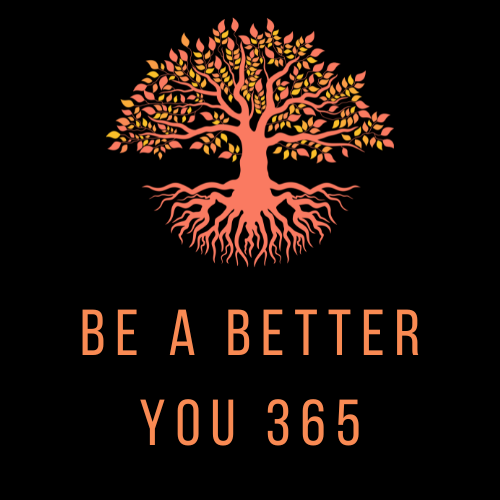In this article, you will explore the fascinating connection between gratitude and personal growth as well as overall well-being. Discover how the act of expressing thanks can positively impact your life, from enhancing your mental health to strengthening your relationships. By understanding how gratitude plays a crucial role in nurturing a fulfilling and balanced existence, you will uncover valuable insights that can empower you on your journey towards self-improvement and happiness.
The Definition of Gratitude
Gratitude is a powerful and positive emotion that involves acknowledging and appreciating the good things in life. It goes beyond simply saying “thank you,” as it is a state of mind and a way of life. When you feel grateful, you are essentially recognizing the goodness that exists around you and within you. It is about having a deep sense of appreciation for the present moment and expressing gratitude for the people, experiences, and things that contribute to your happiness and well-being.
Understanding the Concept of Gratitude
Understanding the concept of gratitude requires recognizing that it is not solely about being polite or expressing appreciation for something that is done for you. It is about cultivating a mindset of abundance and focusing on what you have, rather than what you lack. Gratitude is an attitude that sees the glass as half full, even during challenging times. It is about finding joy and contentment in the present moment and recognizing that there is always something to be thankful for.
Differentiating Gratitude from Other Positive Emotions
While gratitude is often associated with other positive emotions such as happiness and contentment, it is important to differentiate it from these emotions. Gratitude is a specific response to the positive experiences and blessings in your life, whereas happiness is a more general state of well-being that encompasses a range of emotions. Gratitude is also different from contentment in that it involves actively acknowledging and appreciating the good things in life, rather than simply feeling satisfied with what you have.
The Impact of Gratitude on Personal Growth
Gratitude has a profound impact on personal growth, as it enhances self-reflection and awareness, while also fostering a growth mindset.
Enhancing Self-Reflection and Awareness
When you cultivate gratitude, you develop a greater sense of self-awareness. By regularly acknowledging and appreciating the positive aspects of your life, you become more attuned to the things that bring you joy and fulfillment. This heightened self-reflection allows you to gain a deeper understanding of yourself, your values, and your priorities. As a result, you can make more intentional choices and pursue personal growth in alignment with your authentic self.
Fostering a Growth Mindset
Gratitude is closely intertwined with having a growth mindset, which is the belief that your abilities and intelligence can be developed through effort, learning, and persistence. When you approach life with gratitude, you recognize that challenges and setbacks are opportunities for growth and learning. Rather than being discouraged by obstacles, you view them as stepping stones toward personal development. This mindset shift empowers you to embrace challenges, persevere through difficulties, and ultimately experience personal growth.

The Connection between Gratitude and Mental Well-being
Gratitude has a significant impact on mental well-being, as it reduces stress and anxiety levels, and promotes positive emotions and happiness.
Reducing Stress and Anxiety Levels
In today’s fast-paced and hectic world, stress and anxiety have become all too common. Gratitude offers a powerful antidote to these negative emotions. When you focus on the things you are grateful for, you shift your attention away from worries and stressors, which in turn reduces the intensity of these feelings. Gratitude helps to calm the mind and cultivate a sense of peace, allowing you to navigate life’s challenges with resilience and ease.
Promoting Positive Emotions and Happiness
Gratitude is closely linked to positive emotions and happiness. By consciously acknowledging and appreciating the good things in your life, you cultivate a positive outlook that uplifts your mood and overall well-being. The practice of gratitude helps to shift your perspective from negative to positive, allowing you to focus on the abundance and blessings that surround you. This positive mindset leads to increased happiness and satisfaction with life.
Gratitude and Physical Well-being
Gratitude not only impacts mental well-being but also has tangible effects on physical health. It has been found to boost physical health and strengthen the immune system.
Boosting Physical Health
Research has shown that gratitude is associated with improved physical health. Grateful individuals tend to engage in healthier behaviors, such as regular exercise and a balanced diet, which contribute to overall physical well-being. Moreover, gratitude has been linked to lower blood pressure, reduced inflammation, and better cardiovascular health. By cultivating gratitude, you can enhance your physical health and improve your overall quality of life.
Strengthening Immune System
Gratitude has also been found to strengthen the immune system. When you experience gratitude, your body releases hormones that have a positive impact on immune function. This can help to protect you from illnesses and boost your body’s ability to fight off infections. By fostering gratitude in your life, you not only enhance your mental and emotional well-being but also fortify your physical health.

Gratitude as a Tool for Relationship Building
Gratitude plays a crucial role in building and nurturing relationships, as it improves interpersonal skills and fosters social connections.
Improving Interpersonal Skills
When you practice gratitude, you become more aware of the kindness and support you receive from others. This awareness leads to an increased ability to express appreciation and gratitude towards them. By expressing gratitude, you strengthen your interpersonal skills, as you learn to effectively communicate your gratitude and build deeper connections with others. Gratitude also helps to cultivate empathy and compassion, which are essential components of healthy relationships.
Fostering Social Connections
Gratitude is a powerful tool for fostering social connections. When you express gratitude to others, you create a positive and uplifting atmosphere that promotes connectedness and bonding. Gratitude acts as a catalyst for forming and maintaining relationships, as it fosters feelings of goodwill and reciprocity. By cultivating gratitude in your interactions with others, you can enrich your social connections and build a supportive network of friends and loved ones.
Gratitude Practices for Personal Growth
There are several gratitude practices that can enhance personal growth and well-being. Two commonly recommended practices include keeping a gratitude journal and expressing gratitude to others.
Keeping a Gratitude Journal
One effective way to cultivate gratitude is to keep a gratitude journal. This involves writing down things you are grateful for on a regular basis. It could be as simple as jotting down three things you are grateful for each day. By regularly reflecting on the positive aspects of your life, you train your mind to focus on the good and develop a habit of gratitude. Keeping a gratitude journal allows you to create a record of the blessings and joys in your life, providing a tangible reminder of all that you have to be grateful for.
Expressing Gratitude to Others
Another powerful gratitude practice is expressing gratitude to others. Take the time to show appreciation for the people who have made a positive impact in your life. It could be as simple as sending a heartfelt thank-you note or verbally expressing your gratitude. By acknowledging the kindness, support, and love that others have shown you, you not only strengthen your relationships but also deepen your sense of gratitude. Expressing gratitude to others creates a cycle of positivity and fosters a supportive and uplifting environment.

The Role of Gratitude in Goal Achievement
Gratitude plays a pivotal role in goal achievement, as it increases motivation and persistence, and enhances resilience and adaptability.
Increasing Motivation and Persistence
When you cultivate gratitude, you develop a sense of appreciation for the progress you have made towards your goals. This appreciation acts as a motivator, driving you to continue working towards your desired outcomes. Gratitude shifts your focus from what is lacking to what you have already accomplished, fueling your determination and perseverance. By maintaining a grateful mindset, you stay committed to your goals and overcome obstacles that may come your way.
Enhancing Resilience and Adaptability
Gratitude is closely tied to resilience and adaptability, which are essential qualities for goal achievement. When faced with setbacks or unexpected challenges, gratitude helps you reframe the situation and find the lessons and opportunities for growth within it. Instead of becoming discouraged or disheartened, you approach difficulties with a mindset of gratitude, embracing the learning experiences they offer. This ability to adapt and bounce back from setbacks is crucial for achieving long-term success.
Gratitude and Self-Esteem
Gratitude has a significant impact on self-esteem, as it boosts self-confidence and self-worth, while also reducing negative self-talk.
Boosting Self-Confidence and Self-Worth
Practicing gratitude allows you to recognize and appreciate your own strengths, accomplishments, and positive qualities. As you focus on the things you are grateful for within yourself, you develop a greater sense of self-confidence and self-worth. Gratitude fosters a positive self-image, as it encourages you to acknowledge and celebrate your own unique gifts and abilities. By cultivating gratitude, you cultivate a strong foundation of self-esteem.
Reducing Negative Self-Talk
Gratitude serves as an antidote to negative self-talk and self-criticism. When you consciously direct your attention towards gratitude, you shift the focus from self-doubt and self-judgment to self-acceptance and self-compassion. Gratitude allows you to reframe negative thoughts and replace them with positive affirmations. By practicing gratitude regularly, you silence your inner critic and create a nurturing and supportive inner dialogue.

Cultivating Gratitude in Daily Life
Cultivating gratitude in daily life involves finding gratitude in small moments and practicing mindfulness and presence.
Finding Gratitude in Small Moments
Gratitude does not just exist in grand gestures or significant milestones; it can also be found in the small moments of everyday life. Take the time to notice and appreciate the simple pleasures and joys that often go unnoticed. It could be as simple as savoring a cup of coffee in the morning, enjoying a beautiful sunset, or sharing a heartfelt conversation with a loved one. By intentionally seeking out and acknowledging these small moments, you infuse your daily life with a sense of gratitude and wonder.
Practicing Mindfulness and Presence
Mindfulness and presence are integral to cultivating gratitude. When you practice mindfulness, you bring your full attention to the present moment, allowing you to fully experience and appreciate what is happening around you. Mindfulness also helps you cultivate a non-judgmental and accepting attitude, which enhances your ability to find gratitude in even the most ordinary moments. By being fully present in each moment, you open yourself up to the abundance and beauty that exists in every aspect of life.
Gratitude in Challenging Times
Gratitude plays a crucial role in helping you navigate and find meaning in challenging times. It allows you to find silver linings and lessons in difficulties, while also building resilience and psychological flexibility.
Finding Silver Linings and Lessons in Difficulties
During challenging times, it can be difficult to see beyond the immediate pain or struggle. However, gratitude offers a powerful perspective shift. By actively seeking out the silver linings and lessons within difficulties, you can transform adversity into opportunities for growth. Gratitude helps you reframe challenges as catalysts for personal development and resilience. Even in the midst of hardship, there is often something to be grateful for – whether it is the strength gained, the relationships deepened, or the wisdom acquired.
Building Resilience and Psychological Flexibility
Gratitude is closely tied to resilience and psychological flexibility, both of which are crucial for navigating challenging times. When you practice gratitude, you build resilience by developing the ability to adapt and bounce back from adversity. Gratitude helps you focus on the positives, even in the face of difficulties, and strengthens your ability to persevere. Additionally, gratitude enhances psychological flexibility, which is the capacity to adjust your thoughts, emotions, and behaviors in response to changing circumstances. By cultivating gratitude, you cultivate the inner strength and flexibility needed to overcome challenges and thrive.
In conclusion, gratitude plays a vital role in personal growth and well-being. It enhances self-reflection and awareness, fosters a growth mindset, reduces stress and anxiety, promotes positive emotions and happiness, boosts physical health, strengthens the immune system, improves interpersonal skills, fosters social connections, increases motivation and persistence, enhances resilience and adaptability, boosts self-confidence and self-worth, reduces negative self-talk, cultivates mindfulness and presence, helps find silver linings and lessons in challenging times, and builds resilience and psychological flexibility. By incorporating gratitude into daily life, you can experience profound positive changes and create a foundation for personal growth and well-being. So, start practicing gratitude today and watch as it transforms your life for the better.


